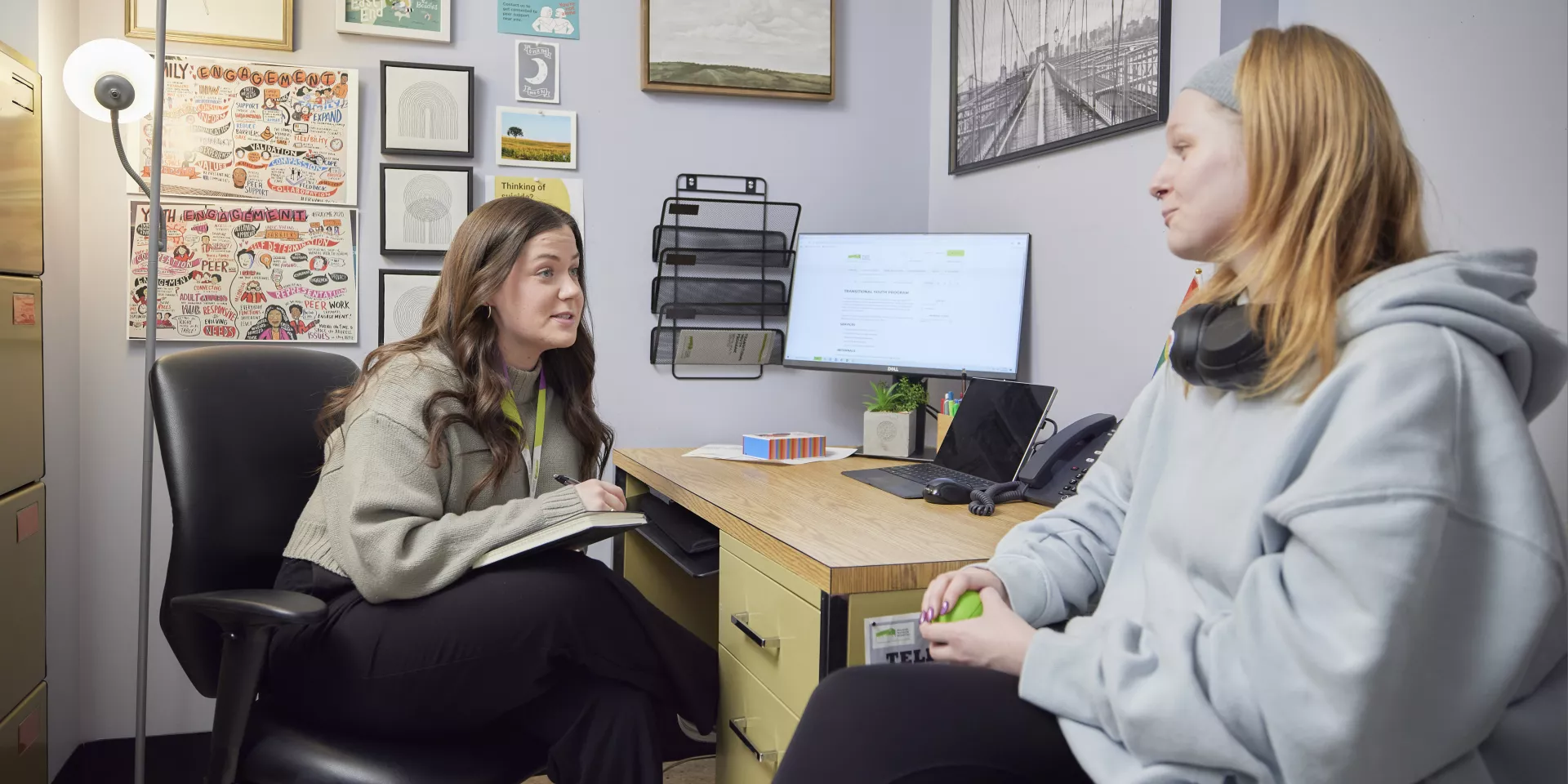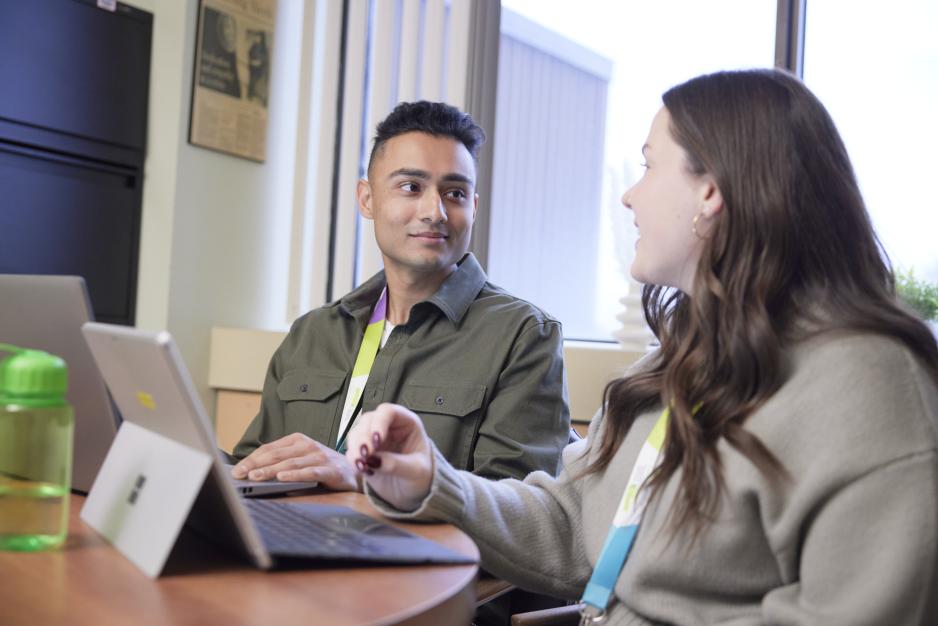When Charlotte* was in crisis, she went to her family doctor for help. The 19-year-old university student shared that she was having suicidal thoughts, and her doctor recommended that she come to our hospital.
“I was scared to go and scared not to go,” Charlotte says. She arrived at our Stavro Emergency Department (ED) with her older sister on a chilly March night.
Treating unmet and growing needs
According to a 2023 study published in the International Journal of Mental Health Systems, Canadian youth aged 16 to 24 have the highest rates of mental health and addiction concerns across all age groups and the most unmet healthcare needs in the country. This is due to a lack of available and appropriate services, fragmented and siloed services, and a challenging transition between child and adult services.
We created our Transitional Youth Program to help. It connects clients, who are aged 16 to 29 and experiencing mental health and/or substance use challenges, with therapy and community supports. The program averages 25 referrals monthly. Like Charlotte, many come through the ED, says Rachel Martin, a Social Worker with the Transitional Youth Program.
Many clients of the program experience fewer crises as they access more supports. Recent data shows a 57 per cent reduction in ED visits for clients engaged in our program, as compared to six months prior to referral.
A friendly face in a moment of need
“We do our best to connect in-person with new clients before they leave the hospital,” says Rachel. “Knowing there’s a familiar face to come back to can make it easier for someone to engage with care by following through with their appointments.”
In this case, Charlotte stayed overnight in our ED. In the morning, she met Dr. Russel, Psychiatrist in Chief, Mental Health and Psychiatry, and together they agreed on next steps. A few days later, Dr. Russel introduced Charlotte to Rachel. The two quickly formed a bond and began making positive changes in Charlotte’s life.
Developing new patterns
Charlotte and Rachel completed questionnaires to assess Charlotte’s needs, values and goals. Then Rachel introduced tools and strategies Charlotte could use to create new habits and work toward her goals.
“I’ve struggled my whole life and found it hard to ask for help. I thought I could handle things on my own, but I couldn’t,” Charlotte says. “But with each appointment I started to feel a lot more comfortable because I could tell that Dr. Russel and Rachel actually wanted to help me.”
Prior to engaging with the Transitional Youth Program, Charlotte didn’t feel motivated to get out of bed. Now she has a routine that includes attending university, taking spin classes and doing one thing every day that gets her out of the house.
Peer-to-peer support
For some clients, the three-month program also provides mentorship through a Peer Support Worker like Riyan Visram. Riyan uses his lived experience with mental health challenges and addiction to “help people see that they’re not alone in what they’re experiencing, and that there is hope,” he says. “I tell them that there’s an incredible, fulfilling life ahead in recovery.”
Riyan also facilitates group therapy sessions, building deep bonds with his clients. “For me, the hardest part is saying goodbye at the end of three months. But that’s also the best part because I can see how far someone has come, and witness them rediscovering the things that bring them joy.”
Making plans for the future
Charlotte is continuing her studies and considering a future in social work, inspired by the support she has received. With Rachel’s help, she is connecting with community-based mental health supports for ongoing care. A part-time job is also on her list of goals.
And Charlotte knows that life doesn’t always go according to plan. “Things are going to go wrong at some point, but now I feel like I have the tools to manage whatever comes my way,” she says.
“I’m happy to be alive. I’ve had such a good experience with this program that it feels important for me to share my story.”
The Transitional Youth Program relies entirely on the support of generous donors. To support great care at our hospital, please give at mghf.ca/donate.
* last name omitted for privacy

